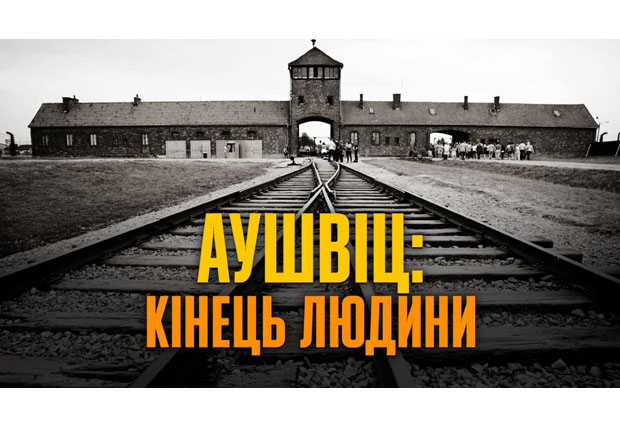The banality of evil: from Auschwitz to Mariupol
 The YouTube channel "10 Questions to a Historian" featured an interview about the history of the Auschwitz death camp, which has become an undisputed symbol of Nazi crimes in World War II. This is the story of how some people (including educated and seemingly mentally healthy people) killed other people on a scale and systematic basis that had never been seen before. The "banality of evil" was that the virtue of loyalty turned bureaucrats into committed genocide performers.
The YouTube channel "10 Questions to a Historian" featured an interview about the history of the Auschwitz death camp, which has become an undisputed symbol of Nazi crimes in World War II. This is the story of how some people (including educated and seemingly mentally healthy people) killed other people on a scale and systematic basis that had never been seen before. The "banality of evil" was that the virtue of loyalty turned bureaucrats into committed genocide performers.
Today, the Russian-Ukrainian war is the most urgent and painful problem for our country. The entire civilised world is paying attention to the events in Ukraine. Today, Russia is destroying the post-World War II system of international relations, undermining international peace and security by waging the largest continental war in Europe since World War II against a sovereign state. Now, just as eighty years ago, Ukraine is fighting against totalitarianism; fighting for the future - its own, and the future of Europe and the entire civilised world.
With the unfolding of russia's full-scale aggression against Ukraine, everyone felt that the memory of the crimes and experiences of the Second World War was being reflected in current events. The students already knew the interpretation of the words "genocide", "filtration camp", "Gauleiter", "ghetto" from their history classes, when they studied the totalitarian ideologies of the twentieth century. But the worst thing is that they have all heard these words in the context of the present, and they have encountered them in the twenty-first century.
Analysing the feedback, we can state that the meeting with Anatolii Podolskyi was definitely not without effect, as everyone received new historical knowledge and enjoyed the emotional presentation of the material.
Yuliia Rudenko, PhD, Associate Professor
Announcements
MoreLatest News
-
Research Team Meeting for the Project “One Stone - One Life: 80 Stumbling Stones for Kyiv”
On 13 December 2025, the first in‑person meeting of school research teams took place in Kyiv. These teams are currently studying the biographies for new Stumbling Stones. Five teams from Kyiv and one from Odesa - history teachers working together with their students - are each conducting their own research.
[More] -
Mnemonika NGO Held a Workshop on Holocaust Remembrance and Related Educational Practices
On 5-6 December 2025, Mnemonika NGO held a workshop in Rivne that brought together educators from across Ukraine to explore Holocaust remembrance, the local history of Sosonky, and contemporary approaches to teaching sensitive topics.
[More] -
Educational and Methodological Seminar for Ukrainian Educators at Yad Vashem (Jerusalem)
On 23–29 November 2025, a seminar for Ukrainian history teachers was held at the Yad Vashem Memorial. After a six‑year break, the Ukrainian Centre for Holocaust Studies resumed its annual teacher‑training programme in Jerusalem, one of its longest‑running educational initiatives, launched in 2006.
[More] -
The “Remembrance in Dialogue” Educational Project for Ukrainian Teachers
On 19 November 2025, within the framework of the Remembrance in Dialogue project organized by Insha Osvita and Austausch, a workshop was held for school history teachers dedicated to researching and teaching local Holocaust histories. The project focuses on preserving the memory of the Holocaust during Russia’s war against Ukraine.
[More] -
Blasphemy, Indifference, and Russian Propaganda: The Story of the Failed Creation of the Babyn Yar Museum
The Museum of the History of Kyiv has published a study by well-known Ukrainian historian Vitalii Nakhamanovych on the history of attempts to create a museum in Babyn Yar, the struggle for historical memory of this crime and tragedy in the history of Ukraine during World War II, a struggle that continues to this day.
[More]




